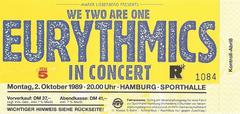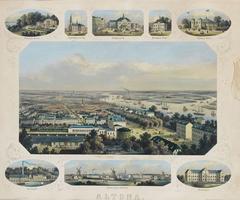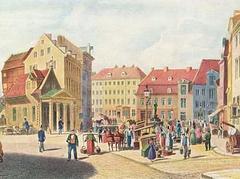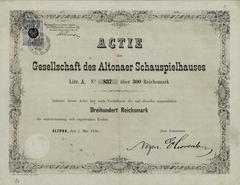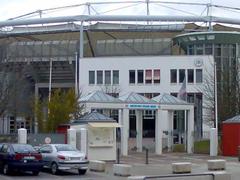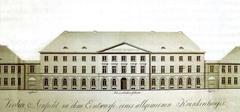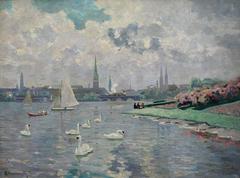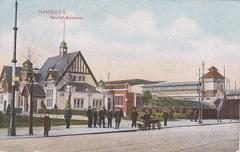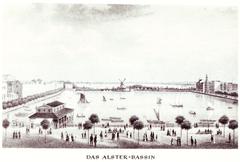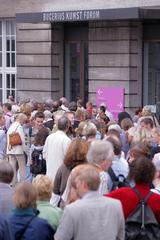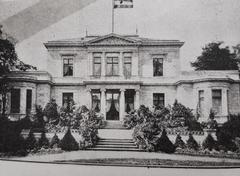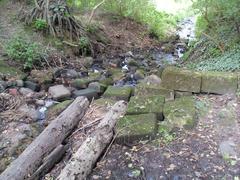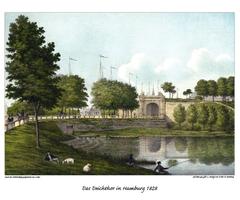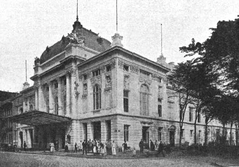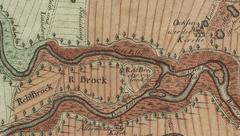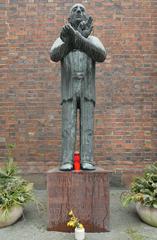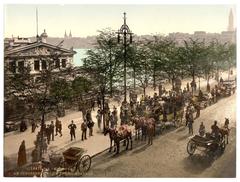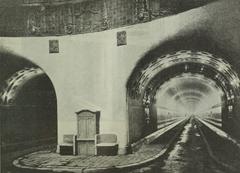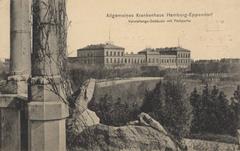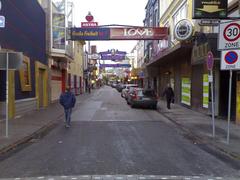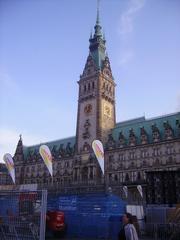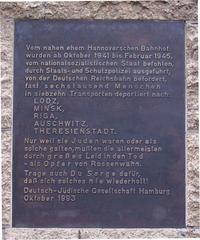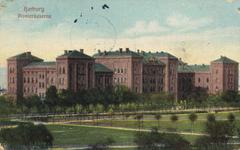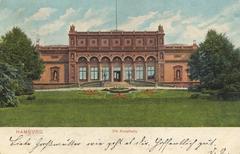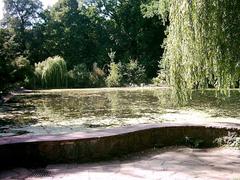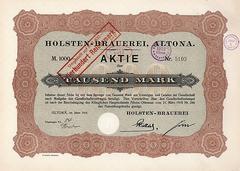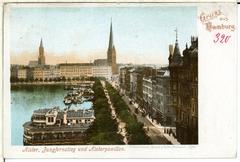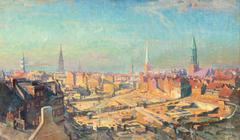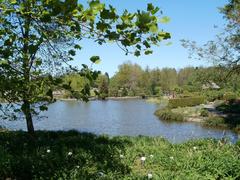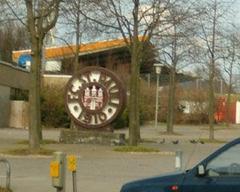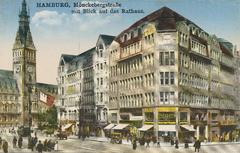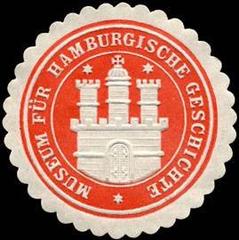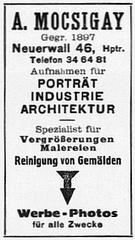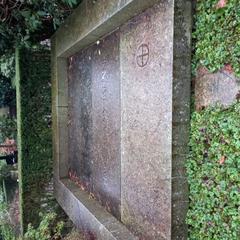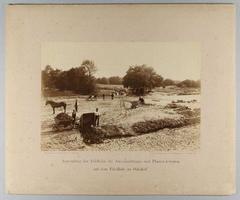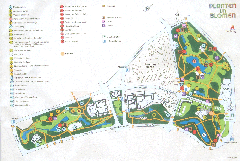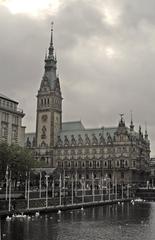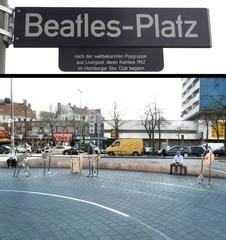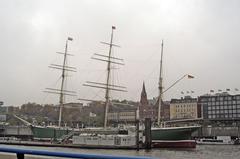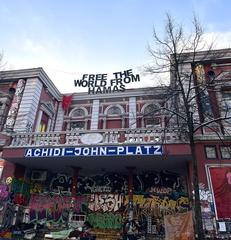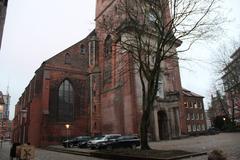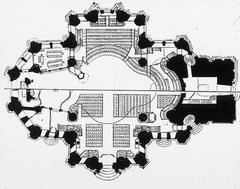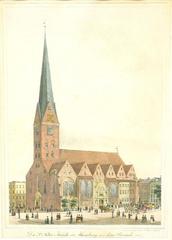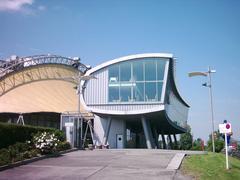
Al-Quds Mosque Hamburg: Visiting Hours, Tickets, and Historical Significance
Date: 03/07/2025
Introduction: History and Cultural Importance
Located in Hamburg, Germany, the Al-Quds Mosque—historically known as the Taiba Mosque and occasionally as the Imam Ali Mosque—occupies a complex place within the city’s religious and cultural landscape. Founded in the early 1960s by Iranian merchants to serve a burgeoning Shiite Muslim community, it became a significant spiritual and social hub, reflecting Hamburg’s evolving multicultural fabric (MENA Research Center). The mosque’s name, “Al-Quds,” is the Arabic term for Jerusalem, underscoring a symbolic connection to Islamic heritage and broader global Muslim solidarity.
The mosque’s history is marked by both its pivotal religious role and controversy. In the early 2000s, it became associated with the “Hamburg Cell” involved in the September 11 attacks. This led to its closure by German authorities in 2010 amid concerns over extremist activities (CNN; BBC). Today, while the original building is closed, the active Al-Quds/Taiba Mosque on Steindamm Street welcomes visitors, offering insights into Hamburg’s Islamic traditions and community life (Spiegel International; Visit My Mosque).
This guide details the mosque’s founding, its cultural significance, practical visitor information, nearby attractions, and its continued relevance within Hamburg’s diverse society.
Table of Contents
- Introduction
- Historical Overview and Founding
- Cultural Significance
- Visitor Information
- Architectural Features
- Nearby Attractions
- Accessibility and Travel Tips
- Cultural Impact and Intercultural Dialogue
- Role in Shaping Muslim Identity
- Interfaith Relations and Public Perception
- The Mosque’s Future
- Visiting the Former Mosque Site
- Frequently Asked Questions (FAQ)
- Conclusion
- References and Further Reading
Historical Overview and Founding
Founded in the early 1960s by Iranian merchants, the Al-Quds Mosque was established to meet the religious and communal needs of Hamburg’s growing Shiite Muslim population (MENA Research Center). Its creation coincided with a wave of labor migration to Germany, and it soon developed into a central gathering place for religious observance, education, and cultural celebration, especially for the Iranian diaspora.
After the 1979 Iranian Revolution, the mosque’s administration aligned more closely with the Islamic Republic of Iran, which influenced its religious and political orientation (Middle East Forum).
Cultural Significance
The mosque became one of the most prominent Shiite Islamic centers in Germany and Western Europe. It hosts daily prayers, major religious festivals like Ashura and Ramadan, and educational programs in the Twelver Shiite tradition (MENA Research Center). The name “Al-Quds” signifies a spiritual link to Jerusalem, fostering global Islamic identity and supporting causes such as Al-Quds Day in solidarity with Palestinians (Islamway).
Visitor Information
Visiting Hours
As of 2024, the Taiba Mosque (formerly Al-Quds Mosque) on Steindamm Street is open to visitors:
- Monday to Friday: 9:00 AM – 6:00 PM
- Saturday and Sunday: 10:00 AM – 4:00 PM
Entry and Tickets
- Admission: Free for all visitors
- Guided Tours: Available upon request during visiting hours; booking in advance is recommended (Visit My Mosque).
Dress Code and Etiquette
- Modest clothing is required (shoulders and knees covered).
- Shoes must be removed before entering prayer areas.
- Headscarves are available for female visitors.
- Maintain a respectful and quiet demeanor at all times (Visit My Mosque; Learn Religions).
Travel Tips
- Visit during non-prayer times for a more tranquil experience.
- Photography is permitted in designated areas; always ask before photographing worshippers or religious activities.
- The mosque is wheelchair accessible and equipped with accessible restrooms.
Architectural Features
The mosque blends traditional and modern Islamic architectural elements. The exterior is understated, while the prayer hall features intricate Arabic calligraphy and geometric patterns. The blue-tiled minaret is a distinctive feature and a popular photography spot.
Nearby Attractions
Enhance your visit by exploring the following nearby sites:
- St. Michael’s Church: A Hamburg landmark with impressive architecture.
- Hamburg City Hall: Noted for its historic exhibits.
- Steindamm Street Market: Experience Hamburg’s multicultural commerce and cuisine.
- Alster Lakes: Scenic spots for walking and relaxation.
- Speicherstadt and HafenCity: Explore Hamburg’s maritime heritage.
Accessibility and Travel Tips
- Location: Steindamm 103, St. Georg district, Hamburg.
- By Public Transport: The nearest U-Bahn station is Lohmühlenstraße, a short walk away. Bus and subway lines connect from Hamburg Hauptbahnhof (Rome2Rio).
- By Taxi or Walking: Taxis are widely available; the mosque is a 10–15 minute walk from the main station.
- Amenities: Dining and accommodation options are abundant in the St. Georg district.
Cultural Impact and Intercultural Dialogue
Fostering Dialogue
The mosque hosts open days and educational programs, participating in citywide events like the “Long Night of the Mosques” to promote understanding and counter stereotypes (Visit My Mosque). It offers language classes, counseling, and integration support, reinforcing its role as a community anchor.
Community Service
In addition to religious functions, the mosque provides social services, helping immigrants adapt while maintaining their cultural identity.
Role in Shaping Muslim Identity
For the Iranian Diaspora
The mosque is a hub for the Iranian community, hosting cultural events, Persian language classes, and Nowruz celebrations (MENA Research Center).
Religious Education
It serves as a center for Shiite scholarship, training religious leaders and offering Quranic studies (Visit My Mosque).
Interfaith Relations and Public Perception
The mosque actively participates in interfaith initiatives with Christian and Jewish groups, organizing joint seminars and open houses to foster mutual respect. Despite these efforts, it has faced challenges due to stereotypes and Islamophobia, with leaders emphasizing peaceful coexistence and legal compliance (Learn Religions).
The Mosque’s Future
As of mid-2025, the mosque’s status remains uncertain following its closure in 2010 due to links with extremist activities (CNN; BBC). Ongoing discussions involve repurposing the site as a cultural center or reopening under new conditions. The outcome will shape Shiite representation and the broader debate on Islam’s role in German society (MENA Research Center; Middle East Forum).
Visiting the Former Mosque Site
Location and Accessibility
- Address: Steindamm 103, St. Georg district, near Hamburg Hauptbahnhof.
- Access: The site is easily reached via public transport; the Lohmühlenstraße U-Bahn station is nearby (Rome2Rio).
Visiting Policy
- The former mosque has been permanently closed since August 2010.
- No public entry or tours are available. Visitors may view the exterior from the street (CNN; Spiegel International).
Practical Tips
- Exterior photography is generally allowed but should be discreet and respectful of privacy.
- The surrounding area is diverse and lively but standard urban precautions apply, especially near the main station.
Etiquette and Sensitivity
- The site’s legacy as a focal point in the 9/11 investigation and closure due to extremism necessitates a sensitive and respectful approach (Wikipedia; Foreign Policy).
- No religious or community activities take place at this location.
Accommodation and Amenities
- Numerous hotels, hostels, and restaurants are available near Hamburg Hauptbahnhof and throughout St. Georg.
- No visitor facilities are available at the former mosque site.
Responsible Tourism
- The site serves as a reminder of Hamburg’s complex role in global history and the importance of combating extremism.
- Consider visiting active mosques such as the Centrum Moschee or Imam Ali Mosque for a more immersive experience.
Frequently Asked Questions (FAQ)
Can I visit inside the former Al-Quds Mosque?
No. The mosque has been closed since 2010 and is not open to the public.
Are there tickets or visiting hours?
There are no tickets or visiting hours as the site is closed.
Where are the nearest active mosques?
Active mosques include the Centrum Moschee in Schanzenviertel and the Imam Ali Mosque at the Islamic Centre Hamburg.
Is photography allowed?
Discrete exterior photography is permitted; please respect privacy and local businesses.
Is the area safe?
The St. Georg district is generally safe, but exercise standard city precautions, particularly after dark.
Conclusion
The Al-Quds Mosque in Hamburg stands as a powerful symbol of religious devotion, cultural identity, and the challenges of navigating pluralism in a modern European city. Its history encompasses both community enrichment and controversy, reflecting broader debates about integration, security, and religious freedom. While the original mosque is closed, the Taiba Mosque remains an accessible and engaging destination for those seeking to understand Hamburg’s Muslim communities and multicultural heritage.
Visitors are encouraged to approach the mosque and its surroundings with cultural sensitivity, honoring the site’s significance while exploring Hamburg’s rich tapestry of religious and cultural landmarks. Use resources like the Audiala app for up-to-date guides and travel tips to make the most of your visit.
References and Further Reading
- Islamism in Germany – The future of the Blue Mosque, MENA Research Center
- Germany mosque closure over extremism fears, CNN
- Germany mosque closed amid extremist fears, BBC News
- Allah’s Elite: Why the 9/11 Mosque Was Closed, Spiegel International
- Importance of Al-Quds for Muslims, Islamway
- Visitor Guide to Mosques, Visit My Mosque
- Etiquette of Visiting a Mosque, Learn Religions
- Life and Death of a Radical Mosque, Foreign Policy
- Is Hamburg Worth Visiting?, Destination Abroad
- Things to Know Before Visiting Germany, Tapped Out Travellers
- Hamburger Verkehrsverbund (HVV) – Official Transport Site
Plan your visit with the Audiala app to access detailed guides, maps, and cultural tips for Hamburg’s historic neighborhoods. For more travel inspiration and updates, follow us on social media.


